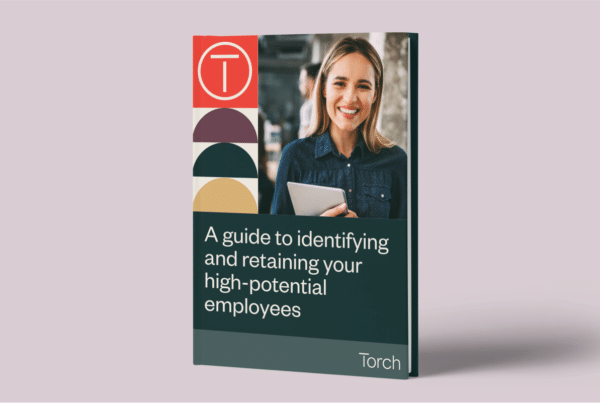Every organization recognizes the value of high-potential employees (HiPos). These are individuals who display the motivation, ability, and organizational commitment to rise to and succeed in senior positions. Research shows that HiPo employees work 21% harder than their peers – not to mention they also bring 91% more value to the organization than non-HiPos.
As an HR leader, your priority should be to retain your HiPos by making sure they’re happy and fulfilled in their roles. One of the best ways to do this is to offer mentoring and leadership coaching programs, which are the two most unmet needs of HiPos. In this post, we’ll explain how coaching and mentoring can benefit your most valuable employees.
1. Improved role proficiency
Organizations often assume that HiPos are “naturally” good at their jobs. But, like any other employee, they need support to become proficient in their roles. This means being given the resources to build the skills they need for the job, as well as the space to make mistakes, receive feedback, and learn at their own pace.
Mentors and coaches can provide this type of support. Whether it’s guiding HiPos through obstacles based on their personal experience or identifying areas of weaknesses to develop, these relationships can help employees become more skilled in their roles. That’s why 84% of leaders who received mentoring reported becoming proficient in their roles faster and leadership coaching that includes goal setting and feedback has been shown to increase productivity by up to 88%.
2. Better job satisfaction
HiPos are under a lot of pressure. Since they’re highly motivated and competent individuals, these employees tend to be given additional responsibilities and have higher expectations placed on them. While it’s good to be stretched in a role, being asked to do too much without enough support will inevitably lead to low morale.
While HiPos should be receiving recognition and help from their company leaders, mentors and coaches can serve as an additional support system for these employees. These relationships have been found to have a significant impact on how HiPos perceive their roles, with 91% of individuals who have a mentor being satisfied with their job. Similarly, employees at companies with strong coaching cultures tend to be significantly more engaged than those at organizations who do not, which is a great indicator of job satisfaction.
3. Higher confidence levels
It’s easy to assume that HiPos know they’re doing a great job. After all, they’re always being assigned to the most important projects and constantly being praised for their work. But that’s not always the case. Like anybody else, they suffer from self-doubt, Imposter Syndrome, and a lack of confidence – all things that can negatively affect their performance.
HiPos can be particularly susceptible to a lack of confidence since they have high levels of self-awareness and are more likely to hone in on their areas of weakness. Thankfully, research supports the fact that mentoring and coaching programs can help them work through these internal obstacles and live up to their full potential.
At Torch, we’ve found within our own dataset that 92% of mentees report improved confidence in handling challenges and increased skills for the job. The International Coach Federation also found that 80% of people who receive coaching report increased self-confidence. It’s clear that having someone – whether that’s in the form of a mentor or coach – shine a light on the strengths of your HiPos can significantly boost their levels of confidence.
4. More opportunities for growth
Research has found that a lack of development opportunities is a common reason behind an employee’s decision to leave their company. This is especially true for HiPos, who are always looking for opportunities to grow personally and professionally. A mentor or coach can present these opportunities for growth by identifying areas for improvement, helping navigate new projects or roadblocks, and supporting the development of new skills.
In fact, we found that 89% of Torch’s mentees report increased ambition for more responsibility. Similarly, coaching has helped 70% of respondents benefit from improved relationships and more effective communication skills. Without these opportunities to improve themselves and their skill sets, your HiPos are likely to become unfulfilled in their jobs and seek other options.
Don’t take your HiPos for granted. Instead, invest in their success by offering support – through resources like coaching and mentoring programs – to help them fulfill their full potential and increase the chances that they’ll stay with your company.
Want to learn how to identify, retain, and develop the HiPos in your organization?
Check out our ebook.




